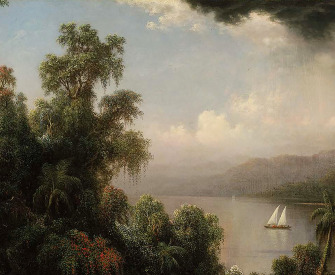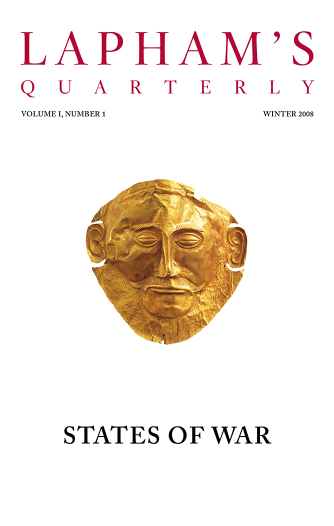Ma was slamming the windows shut, all around the house. Pa came and stood just inside the front door, looking out. Laura and Jack stood close beside him. Grasshoppers beat down from the sky and swarmed thick over the ground. Their long wings were folded and their strong legs took them hopping everywhere. The air whirred and the roof went on sounding like a roof in a hailstorm.
Then Laura heard another sound, one big sound made of tiny nips and snips and gnawings. “The wheat!” Pa shouted. He dashed out the back door and ran toward the wheat field.
The grasshoppers were eating. You could not hear one grasshopper eat, unless you listened very carefully while you held him and fed him grass. Millions and millions of grasshoppers were eating now. You could hear the millions of jaws biting and chewing.
Pa came running back to the stable. Through the window Laura saw him hitching Sam and David to the wagon. He began pitching old, dirty hay from the manure pile into the wagon as fast as he could. Ma ran out, took the other pitchfork, and helped him. Then he drove away to the wheat field and Ma followed the wagon.
Pa drove around the field, throwing out little piles of stuff as he went. Ma stooped over one, then a thread of smoke rose from it and spread. Ma lit pile after pile. Laura watched till a smudge of smoke hid the field and Ma and Pa and the wagon.
Grasshoppers were still falling from the sky. The light was still dim because grasshoppers covered the sun.
Ma came back to the house, and in the closed lean-to she took off her dress and her petticoats and killed the grasshoppers she shook out of them. She had lit fires all around the wheat field. Perhaps smoke would keep the grasshoppers from eating the wheat.
Ma and Mary and Laura were quiet in the shut, smothery house. Carrie was so little that she cried, even in Ma’s arms. She cried herself to sleep. Through the walls came the sound of grasshoppers eating.
The darkness went away. The sun shone again. All over the ground was a crawling, hopping mass of grasshoppers. They were eating all the soft, short grass off the knoll. The tall prairie grasses swayed and bent and fell.
“Oh, look,” Laura said, low, at the window.
They were eating the willow tops. The willows’ leaves were thin and bare twigs stuck out. Then whole branches were bare and knobby with masses of grasshoppers.
“I don’t want to look anymore,” Mary said, and she went away from the window. Laura did not want to look anymore either, but she could not stop looking.
The hens were funny. The two hens and their gawky pullets were eating grasshoppers with all their might. They were used to stretching their necks out low and running fast after grasshoppers and not catching them. Every time they stretched out now, they got a grasshopper right then. They were surprised. They kept stretching out their necks and trying to run in all directions at once.
“Well, we won’t have to buy feed for the hens,” said Ma. “There’s no great loss without some gain.”
The green garden rows were wilting down. The potatoes, the carrots, the beets and beans were being eaten away. The long leaves were eaten off the cornstalks, and the tassels, and the ears of young corn in their green husks fell covered with grasshoppers.
There was nothing anybody could do about it.



